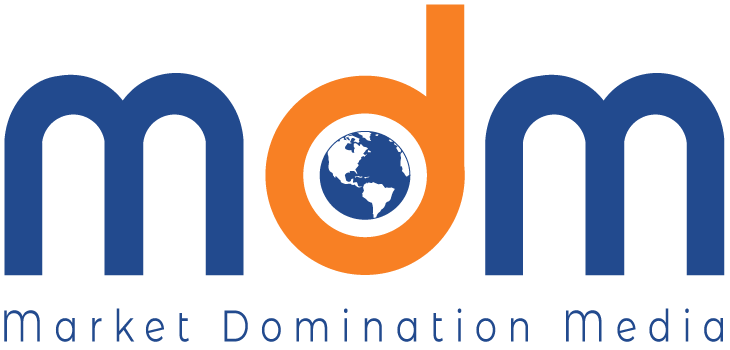Breaking Down The Google Antitrust Verdict – August 2024
Date: August 7, 2024

Key Facts
- Federal Judge Mehta ruled that Google is an “Illegal Monopolist” in his August 5th, 2024 Opinion.
- Google has monopoly power in the markets for general search services (GSE) and general search text ads.
- According to Judge Mehta’s Opinion, Google’s agreements with companies like Apple and Mozilla to make (and keep) Google the default search engine on their devices was anti-competitive, a violation of the Sherman Antitrust Act of 1890, and ultimately what gave them their unfair market advantage.
- Google will appeal the decision, according to their spokespeople.
Why was Google Sued
Google, “widely recognized as the best GSE available in the United States” according to Judge Amit Mehta’s August 5th, 2024 opinion, was sued and found to be a “Monopolist” for the anti-competitive nature of their agreements and actions as it pertains to their search products, including text ads.
Owning 9 times the search queries of all other search engines COMBINED and 19 times when looking at mobile, Google is the powerhouse in the space. The DOJ made the argument that their contracts with companies like Apple and Mozilla to make Google the default search engine on their devices and apps was the reason Google has been able to maintain its chokehold on the search industry.
What Google is ACTUALLY Guilty Of?
This verdict has caused quite a stir in a number of industries, especially marketing. There is some confusion, apparently, as to what Google is ACTUALLY guilty of. To make this very simple and plain, the court found that Google had violated Section 2 of the Sherman Act by unlawfully maintaining its monopoly in the markets for general search services and general search text ads.
The opinion went on to state that Google lacks monopoly power in the product market for search advertising. Being that this is a major revenue driver for Google, this can be seen as a “win” of sorts. Further, the court found that there is no product market for general search advertising.
What is the Sherman Antitrust Act?
The Sherman Antitrust Act, enacted in 1890, is a foundational statute in United States antitrust law aimed at maintaining fair competition in the marketplace. It consists of several key sections:
Section 1: Prohibits contracts, combinations, or conspiracies in restraint of trade or commerce among the several states or with foreign nations. This section targets activities like price fixing, bid-rigging, and other collusive practices that can harm competition.
Section 2: Addresses the issue of monopolization. It prohibits the act of monopolizing, attempts to monopolize, or conspiracies to monopolize any part of the trade or commerce. This section is aimed at preventing entities from using unfair practices to establish or maintain monopoly power in a market.
What Could the Antitrust Ruling Mean For Search Marketing?
This particular ruling will likely not have much impact on the way search marketing is conducted today. Google will appeal this ruling and so will start what could be an endless process of litigating. If higher courts choose to uphold this ruling, however, things will look a little different in the future (probably a distant future).
One thing that many are not talking about is who really has the most to gain from this… that answer is a simple one, Microsoft. Google’s actions, so Microsoft claims, has blocked competitors like Microsoft from having a fair opportunity to compete. Their core concern (as I see it) is that AI in its current form takes a lot of data to train and since Google holds the lion’s share of the data, Microsoft is already at a disadvantage before the race event began.
We will be sharing an opinion piece on the Microsoft element of this case so check back here for a link.
If the ruling is upheld, there will likely be some diversification of user traffic to other, smaller search engines. That said, Google was the defendant in a lawsuit in Europe where The European Commission fined Google $2.8 Billion Dollars as it misused its dominant position as a search engine by giving unjust advantages to its own comparison shopping service. The European Commission determined that Google unfairly prioritized its service over those of competitors in search results, which negatively impacted competition and consumers. Even after this ruling, several years later, Google saw a further increase in users.
How does this Impact Legal Marketers?
Currently, legal marketers should continue to stay the course. The introduction of AI into search is yet another interesting algorithm update that will continue to adapt and evolve over time. Any ramifications of this ruling will not be felt (likely) for years and years to come.
For legal marketers that want to “get ahead” of what might be coming, diversifying some ad spend into other ad platforms (such as Bing) could be a good way to “prepare”. Again, this ruling is only one stop on what could be a long legal battle, and making major changes now could have negative implications down the line if none of the speculation materializes.
In Conclusion, Stay The Course
Resources
Court Opinion: https://www.politico.com/f/?id=00000191-23f0-d160-aff9-6bff4bbe0000
CNN – Google has an illegal monopoly on search, judge rules. Here’s what’s next: https://www.cnn.com/2024/08/05/business/google-loses-antitrust-lawsuit-doj/index.html
Bloomberg Law – Google Monopoly Ruling to Carry Influence in Emerging AI Field: https://news.bloomberglaw.com/antitrust/google-monopoly-ruling-to-carry-influence-in-emerging-ai-field
















